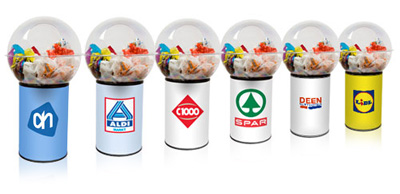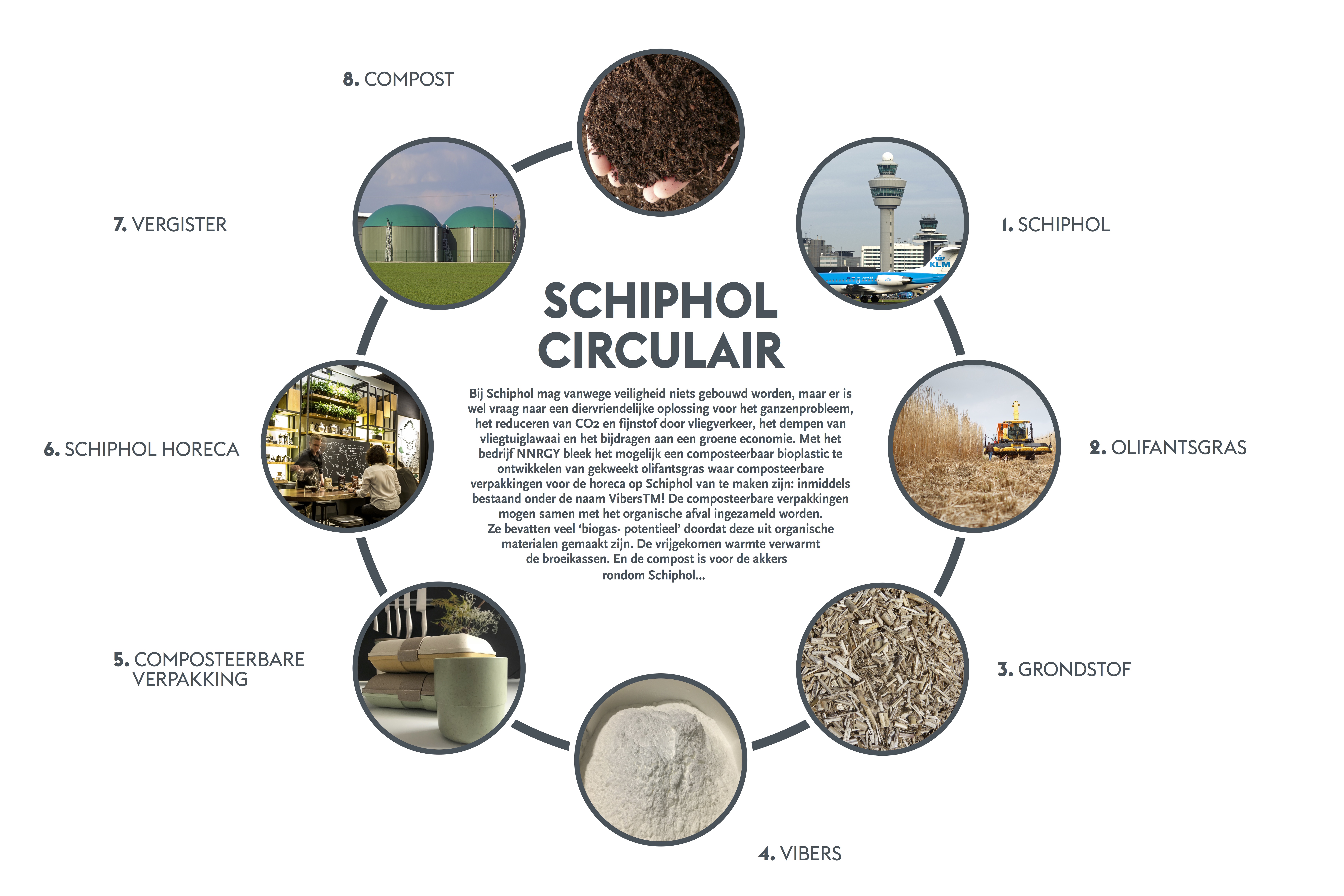
TassenBol / BagBubble
Green Serendipity’s journey began with the visionary and award-winning concept ‘TassenBol‘, developed in 2005. As the first circular initiative of its kind in the EU, TassenBol was designed to revolutionize plastic reuse. It made reusing plastic bags simple while raising awareness about the environmental impact of plastics among retailers, consumers, and governments.
This innovative concept earned widespread recognition, including the prestigious international ‘Mission Sustainability’ award, presented by Angela Merkel in 2007.
The pioneering insights gained from TassenBol remain highly relevant today, offering practical guidance to retailers, brand owners, governments, and municipalities on reuse strategies, (bio)plastics, (biobased) packaging, and the creation of impactful circular concepts.
Schiphol – Circular Packaging Concept

Problem statement:
Around Schiphol Airport, there are many agricultural fields that cannot be used for traditional farming or other purposes due to safety regulations. Like many airports, Schiphol faces significant challenges with birds, particularly geese, which disrupt air traffic.
To address this issue, Schiphol, in partnership with a group of farmers, introduced the cultivation of Miscanthus Giganteus, also known as ‘elephant grass.’ This tall grass provides an effective solution as it prevents birds from landing, absorbs substantial amounts of greenhouse gases, and offers sound-dampening properties.
However, even Miscanthus Giganteus requires periodic mowing, prompting farmers to explore ways to valorize the harvested yield and create additional value.
The Solution:
To develop a compostable bioplastic based on elephant grass for applications such as catering materials and packaging to use at Schiphol Airport itself (a huge market with more than 60 million passengers a year, all eating and drinking).
This innovative bioplastic was developed under the brand name Vibers. Initial samples of thermoformed packaging and injection moulded products showed great potential.
As Schiphol is a closed-loop facility, catering materials and packaging can be collected together with food waste quite easily and taken to the nearby anaerobic digester. In this anaerobic digester, fibres or other valuable nutrients can first be recovered for reuse. Then the organic waste including the Vibers catering materials can be converted into biogas. Compostable bioplastics have a high biogas output. This biogas can be converted into ethanol, which can be the start of new building blocks for new (food-safe) bioplastics.
The captured CO2 goes through a pipeline to nearby greenhouses as feed for plants. The remaining digestate can, if the quality is excellent, be sold as fertilizer or used on the fields around Schiphol. If the quality is not sufficient enough, it can be used for green energy. Even the remaining captured CO2 can be reused in the future to produce new bioplastics (such as AirCarbon made from CO2).
Green Serendipity developed this circular concept in cooperation with the Schiphol Group, HMSHost, Vibers, Suez, the Miscanthusgroep, Meerlanden, Bunzl and Dutch government (RWS). It is a perfect example of the circular bio-economy of the future: how to keep your raw materials, your processing, production, end-of-life but also your economic earnings within 1 region, country or continent. And additionally how you can reduce CO2 emissions, how to provide biogas and green energy of a waste material and how valuable nutrients and raw materials can again serve as input for new raw materials. A perfect closed loop…
View Dutch version here: Schiphol Circulair – de toekomst in praktijk
Green Serendipity offers consultation on circular and reuse concepts. For more information or to book a consult: info@greenserendipity.eu.
